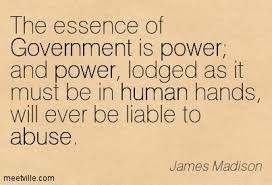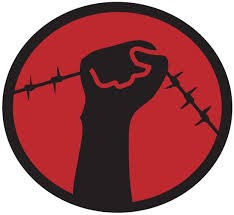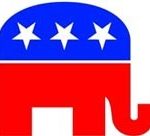Power is the foundation of all types of governments
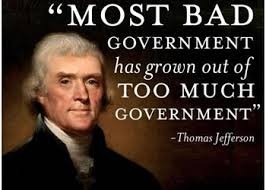 Sociology is the study of human social behavior, human development, organizations, and institutions. To understand how societies have developed with different key features, we have to understand what Power is. It is a key sociological concept with several different meanings agreements and disagreement surrounding its connotation and degree. The most common definition of the world power comes from the German Sociologist Max Weber. He defined it as the ability to control others, events, resources, organizations and money. Weber said the rulers call the shorts in spite of impediments, resistance, or opposition. Power goes to head easily. From the beginning mankind and animals have fought for power as it is seized, coveted, detained, taken away, or stolen, and it is used to rule over the opponents and alleys. Power has always created conflicts between those in power and those without it.
Sociology is the study of human social behavior, human development, organizations, and institutions. To understand how societies have developed with different key features, we have to understand what Power is. It is a key sociological concept with several different meanings agreements and disagreement surrounding its connotation and degree. The most common definition of the world power comes from the German Sociologist Max Weber. He defined it as the ability to control others, events, resources, organizations and money. Weber said the rulers call the shorts in spite of impediments, resistance, or opposition. Power goes to head easily. From the beginning mankind and animals have fought for power as it is seized, coveted, detained, taken away, or stolen, and it is used to rule over the opponents and alleys. Power has always created conflicts between those in power and those without it.
Weber was interested in studying the nature of power and authority and its effects on the modern trends of rationalization. Weber went on to study the operational styles of modern large-scale organizations in the political, administrative, and economic realm. He insisted that bureaucratic coordination of activities is the unique mark of the modern era. Bureaucracies are organized according to rational principles.
In contrast, Karl Marx – the German Philosopher, Economist and Sociologist used the concept of power in relation to social classes and social systems rather than individuals. He argued that power rests with a social class as per its position – how much they produce and how much wealth is accumulated by them. Power does not lie in the relationship between individuals, but in domination and subordination of social classes based on the relations of production.
A third definition comes from Talcott Parsons who argued that power is not a matter of social compulsion and command, but instead flows from a social system’s potential to coordinate human activity and resources in order to accomplish goals.
In order to understand those institutions and how humans are organized, it is important to understand how societies are governed.
OLIGARCHY:
 In oligarchy a society is ruled by a small, powerful minority. These are not necessarily the most capable leaders in a society; sometimes oligarchy is passed down by royalty, wealth, family, military, or religious supremacy. Oligarchies are often controlled by politically powerful families whose children are heavily conditioned and mentored to be heirs of the power of the oligarchy. These types of states have been oppressive throughout history, relying on public helplessness and smugness in order to exist. Oligarchies are not at all similar to democracies, but they are also very different from governments ruled by a single dictator. Oligarchies can have both positive and negative effects on the societies they rule.
In oligarchy a society is ruled by a small, powerful minority. These are not necessarily the most capable leaders in a society; sometimes oligarchy is passed down by royalty, wealth, family, military, or religious supremacy. Oligarchies are often controlled by politically powerful families whose children are heavily conditioned and mentored to be heirs of the power of the oligarchy. These types of states have been oppressive throughout history, relying on public helplessness and smugness in order to exist. Oligarchies are not at all similar to democracies, but they are also very different from governments ruled by a single dictator. Oligarchies can have both positive and negative effects on the societies they rule.
Although traditional oligarchies were ruled by families that passed down power through generations, most contemporary oligarchies are classified as such based on heavy corporate influence and a large imbalance of wealth that facilitates unbridled corporate lobbying. In India, we see some glaring oligarchies in the corporate world.
As of 2014, two of the top existing examples of oligarchies are China and Russia. Russia has been ruled by corporations that control the majority of the nation’s wealth since the disbandment of the Soviet Union. Many experts call Russia a modern oligarchy. China, on the other hand, is cited as a nation that has converted into an oligarchy as the result of becoming a world financial power that now relies on business. Some experts even argue that the power of corporations and the wealth disparity in the United States make it a nation that much more closely resembles an oligarchy than a democracy; no wonder it ranks at number 17 as per world democracy index.
MONARCHY:
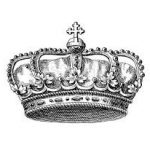 A monarchy is a form of government in which sovereignty is placed in hands of a single individual i.e the Monarch. The forms of monarchy vary widely according to the level of legal autonomy the monarchs hold. The forms differ as in case of governance, the method of selection of the monarch, and encoded limits on the length of their tenure. When the monarch has no or few legal restraints in state and political matters, it is called an absolute monarchy and is a form of autocracy. Cases in which the monarch’s diplomacy is formally limited which is most commonly seen today are called constitutional monarchies. In hereditary monarchies the crown is passed through inheritance within the family, whereas in elective monarchies voting system is used.
A monarchy is a form of government in which sovereignty is placed in hands of a single individual i.e the Monarch. The forms of monarchy vary widely according to the level of legal autonomy the monarchs hold. The forms differ as in case of governance, the method of selection of the monarch, and encoded limits on the length of their tenure. When the monarch has no or few legal restraints in state and political matters, it is called an absolute monarchy and is a form of autocracy. Cases in which the monarch’s diplomacy is formally limited which is most commonly seen today are called constitutional monarchies. In hereditary monarchies the crown is passed through inheritance within the family, whereas in elective monarchies voting system is used.
Monarchy was the most common form of government until the 19th century, but it is no longer customary. Where it exists, it is now usually a constitutional monarchy form, in which the monarch retains a unique legal and ceremonial role, but exercises limited or no political power under the written or unwritten constitution, others have governing authority.
Do you know that at present 44 sovereign nations in the world have monarchs acting as heads of state? And 16 of which are Commonwealth realms that recognize Queen Elizabeth II as their head of state. All European monarchies are constitutional ones. The Vatican City is an exception. It is the smallest state in the world and with absolute monarchy existing. The Pope is its head and it is the only state completely enclosed by a city. The monarchs in the smaller states exercise greater political influence than in the larger. The monarchs of Cambodia, Japan, and Malaysia “reign, but do not rule” although there is substantial dissimilarity in the degree of authority they exert. Whereas, in Brunei, Oman, Qatar, Saudi Arabia and Switzerland the monarchs continue to exercise more political influence than any other single source of authority in their nations, either by constitutional mandate or by tradition.
DEMOCRATIC REPUBLIC:
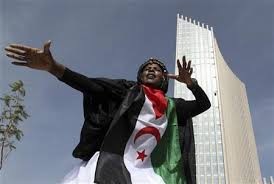 A democratic republic is a country that is both a republic in which power resides in the hands of public and democracy. It is one where ultimate authority and power is derived from the citizens, and the government itself is run through elected officials. However, in recent times it is seen that countries which described themselves as democratic republics have not always held free or fair elections. Two examples of this are the German Democratic Republic and the Democratic Republic of Vietnam; in both examples East Germany and North Vietnam are communist states. In another example Democratic Republic of the Congo is not a free country. Ironically it is seen that a “democratic republic” is not democratic and is not a republic. A government when called by this tag usually practices dictatorship. Communist dictatorships have been especially prone to use this term. For example, the official name of North Vietnam was “The Democratic Republic of Vietnam.” China uses an alternative, “The People’s Republic of China.”
A democratic republic is a country that is both a republic in which power resides in the hands of public and democracy. It is one where ultimate authority and power is derived from the citizens, and the government itself is run through elected officials. However, in recent times it is seen that countries which described themselves as democratic republics have not always held free or fair elections. Two examples of this are the German Democratic Republic and the Democratic Republic of Vietnam; in both examples East Germany and North Vietnam are communist states. In another example Democratic Republic of the Congo is not a free country. Ironically it is seen that a “democratic republic” is not democratic and is not a republic. A government when called by this tag usually practices dictatorship. Communist dictatorships have been especially prone to use this term. For example, the official name of North Vietnam was “The Democratic Republic of Vietnam.” China uses an alternative, “The People’s Republic of China.”
Dictatorship is a form of government where political authority is controlled by a single person or political entity, and exercised through various domineering mechanisms. It is a type of authoritarianism which is contrast of democracy. Dictatorships and totalitarianism generally employ political half truths and half baked accounts to suppress proponents of alternative governing systems. We have very glaring examples of dictators in world such as Robert Mugabe of Zimbabwe, Omar Bashir of Sudan, Kim Jong – II of North Korea, Than Shwe of Burma and King Abdullah of Saudi Arabia all of these are very oppressive in their conduct. And,how can we forget Hitler, Fidel Castro, Mao Tse-tung, and Angusto Pinochet? As I have mentioned in earlier paragraphs, power goes to head easily and people can go to any extent to retain it. Dictators are usually power obsessive people.
DEMOCRACY:
 Churchill said “Democracy is the worst form of government, except for all those other forms that have been tried from time to time.” In my opinion, this form of government however rosily defined has many flaws and problems but all the others have more problems. Democratic states always have freer people than autocratic states. They obviously have the right to vote for their government so by extension deciding the policy of their nation and what their nation should be like. They have more freedom of speech and expression than in autocracies. In particular they are free to criticize their own government. Democracy as per definition has to practice transparency of decision-making as it is about elections and the general public throwing governments out of power. In a democracy the parliament, the media and sometimes the judiciary all keep an eye on the executives and what is being done with the people’s money. They are therefore able to see if the executive is doing things that are detrimental to the country, whether the executive is immoral, or even illegal. Norway tops the list of democracies of the world, Netherland at number 10, US at number 17, France at number 31 and India at number 40.
Churchill said “Democracy is the worst form of government, except for all those other forms that have been tried from time to time.” In my opinion, this form of government however rosily defined has many flaws and problems but all the others have more problems. Democratic states always have freer people than autocratic states. They obviously have the right to vote for their government so by extension deciding the policy of their nation and what their nation should be like. They have more freedom of speech and expression than in autocracies. In particular they are free to criticize their own government. Democracy as per definition has to practice transparency of decision-making as it is about elections and the general public throwing governments out of power. In a democracy the parliament, the media and sometimes the judiciary all keep an eye on the executives and what is being done with the people’s money. They are therefore able to see if the executive is doing things that are detrimental to the country, whether the executive is immoral, or even illegal. Norway tops the list of democracies of the world, Netherland at number 10, US at number 17, France at number 31 and India at number 40.
MILITARY JUNTA:
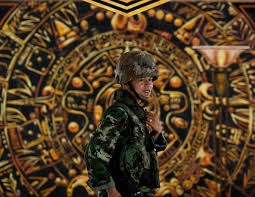 This is a form of government led by a committee of military leaders. The term derives from the Spanish word junta, which means committee or meeting; which is like a board of directors. At times it becomes military dictatorship. In 2014 on 22nd May, Thailand’s military scrapped the old constitution after army chief Prayut Chan-O-Cha seized power from Prime Minister Yingluck Shinawatra who is the sister of former Prime Minister Thaksin Shinawatra who was also ousted in a military coup in 2006 and has been living in self-imposed exile since then.
This is a form of government led by a committee of military leaders. The term derives from the Spanish word junta, which means committee or meeting; which is like a board of directors. At times it becomes military dictatorship. In 2014 on 22nd May, Thailand’s military scrapped the old constitution after army chief Prayut Chan-O-Cha seized power from Prime Minister Yingluck Shinawatra who is the sister of former Prime Minister Thaksin Shinawatra who was also ousted in a military coup in 2006 and has been living in self-imposed exile since then.
The junta in Thailand assigned a newly-formed reform council with the task of drafting a constitution for the nation that has been plagued with political unrest since the past few years. The new body, called the National Reform Council will work alongside the National Legislative Assembly. The new reform council consists of 250 members, 38 of which have served in the military.
Its candidates were chosen through applications from districts and nominations from the public. Military heads gave the final say for who would make up the council. Thailand’s military rulers say that the drafting of the new constitution andits implementation will take place by July next year which will lead to elections. Another example of Military Junta was in Greek from 1967 to 1974.
COMMUNISM:
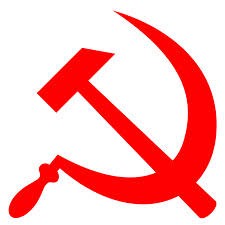 It is a system of government where the government plans and controls the economy. Also all citizens are considered equal. A communist state is a sovereign state with a form of government characterized by single-party rule or dominant-party rule of a communist party and a professed adherence to communist ideology as the guiding principle of the state.
It is a system of government where the government plans and controls the economy. Also all citizens are considered equal. A communist state is a sovereign state with a form of government characterized by single-party rule or dominant-party rule of a communist party and a professed adherence to communist ideology as the guiding principle of the state.
In a true communist state you give what you can to the state for distribution, keeping only that required to satisfy your needs. It isa system of social organization in which all economic and social activities are controlled by a totalitarian state dominated by a single and self-perpetuating political party.
In a Communist state, the Communist party is the nucleus of society. Other parities may function alongside the Communist party occasionally, but parties advocating the restoration of capitalism are typically prohibited. The Communist party governs according to what the society’s historical and national characteristics demand in order to unleash the productive forces and further advance towards communism. For example, in Russia and the Soviet Union in the 1920s, a regulated market economy was initially implemented due to the country’s lack of infrastructural development and to overcome the devastation of civil war. But in the 1930s, the economy of the Soviet Union was characterized by heavy industrialization. Similarly, the People’s Republic of China operated almost on the lines of communism until the 1980s when it opened its economy to foreign investment, allowing for market development alongside it planned development. Reliance on markets and planning have varied in different Communist states, but most such states are characterized by state monopoly over land ownership, full union representation in the workforce, and social security systems to provide for those unable to work.
REPUBLIC:
Is a form of government in which supreme power is held by the people and their elected representatives, and which has an elected or nominated president rather than a monarch. East Timor, Samoa, Nepal, Republic of Kosovo and South Sudan are states which have opted for Republic Form of Government in the 21st century.
ANARCHY:
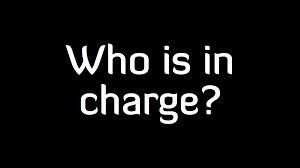 Anarchy is a state of confusion and turmoil due to absence of recognized authority. The Anarchists are self engrossed and self-absorbed leaders. They are over obsessed with their own growth and sustainability. Anarchism is usually short-lived in world. In modern times, in any country by chance, if anarchism prevails it is quickly intruded from outside forces to prevent the problem from spreading further. We often see anarchism when countries go through intense revolutions or civil wars. In fighting among various governing bodies which often destroy law and order in a country usually witnesses anarchism.
Anarchy is a state of confusion and turmoil due to absence of recognized authority. The Anarchists are self engrossed and self-absorbed leaders. They are over obsessed with their own growth and sustainability. Anarchism is usually short-lived in world. In modern times, in any country by chance, if anarchism prevails it is quickly intruded from outside forces to prevent the problem from spreading further. We often see anarchism when countries go through intense revolutions or civil wars. In fighting among various governing bodies which often destroy law and order in a country usually witnesses anarchism.
The ancient Greeks stated: “Without law, there can be no freedom,” and the Founding Fathers agreed, knowing that some laws would be necessary to protect a civilized society. To sight an example of recent times of Anarchy, I site the example of Somalia in which due to the fall of government of Siad Barre the country has been experiencing state of anarchy from 1991. Somalia has not settled till date. The fundamentalist Islamic militants are about to take over and perhaps this might trigger a regional war in the process. The country is becoming a breeding ground for terrorists.
Conclusion: Research conducted by neuroscientists has proved it time and again that feeling powerful, dampens a part of the brain which stimulates empathy. It appears that power fundamentally changes how the brain operates. Some more research on the same topic proved that when people feel powerful, they have more trouble in understanding other people’s emotions and sentiments. It appears that when people are in power it becomes increasingly difficult for them to realize other’s problem which is really ironic; power leads to greed, self-indulgence and grabbing therefore the state leaders cannot empathize with the problems of masses. In alert leadership “compassion” is very important. To be compassionate is to be able to value what the other person is going through, in essence, to walk in their shoes.













































